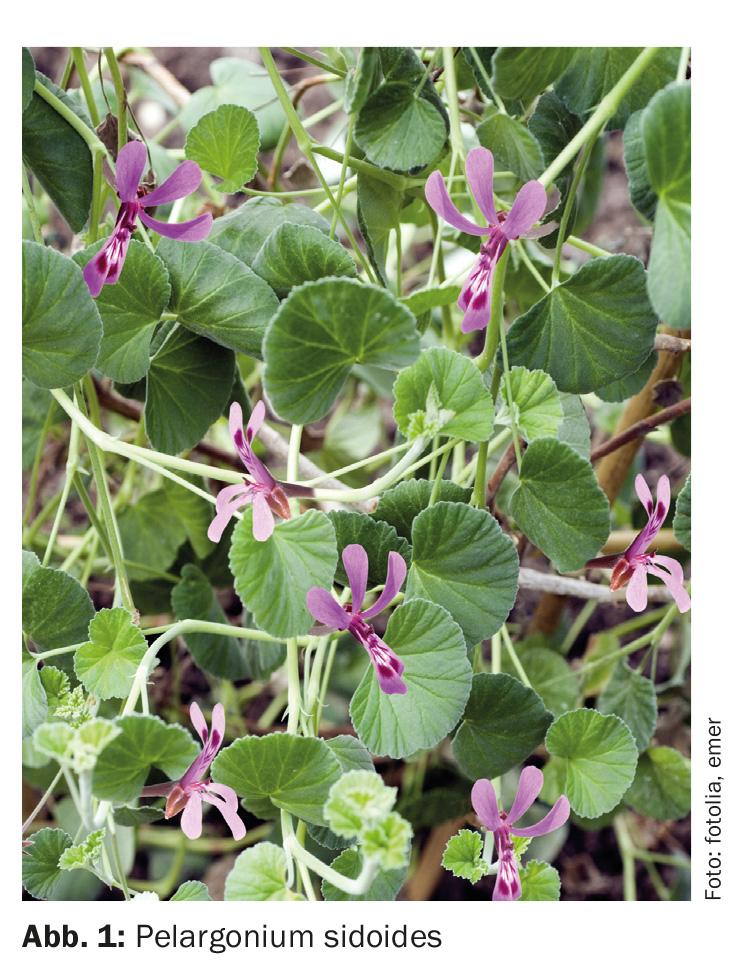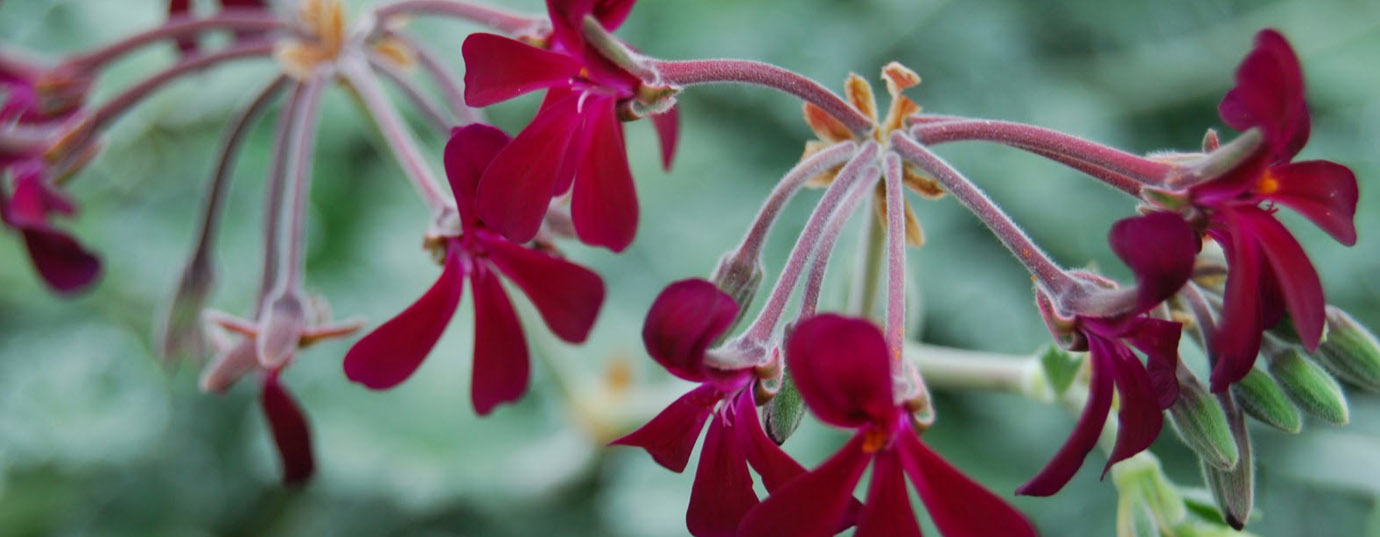For children, parents often want natural drug treatment that is as gentle as possible, especially for illnesses that occur recurrently throughout the year. Acute respiratory infections form the most common disease entity in <5-year-olds and are therapeutic targets for some of the best-known phytotherapeutics.
The cold season is considered a particularly risky period for the development of a number of often self-limiting but distressing respiratory tract infections. These can be divided into diseases of the upper and lower respiratory tract, e.g. the nose and sinuses or the trachea and bronchi. After infection, they are manifested by cough, sore throat, malaise, rhinitis, headache and possibly fever. Complaints that are difficult to bear, especially by children, and thus can cause sometimes considerable worry to caregivers. Last but not least, this interaction probably forms a basis for the existing often very generous prescription of antibiotics. This is despite the fact that it is well known that the vast majority of acute respiratory infections are caused by viruses such as rhino, corona or respiratory syncytial viruses. This improper use of antibiotics, in addition to specific side effects, can also contribute to the development of resistance in microorganisms.
Studies on herbal alternatives
The goal of therapeutic measures in the treatment of acute respiratory diseases is symptom relief. Antitussives, expectorants, decongestants or antipyretics are used for this purpose. Some herbal representatives can also be found in these groups, although there are still quite few studies on their use in children.
2018 Anheyer D, et al. [2]: The research group studied the effect of herbal remedies on respiratory tract infections in children aged 0-18 years. Their review included randomized controlled trials (RCTs) that compared the effects and safety of herbal medicines with placebo, alternative drug therapy, or no therapy. Of the included studies, five addressed the efficacy or preventive properties of Echinacea® for simple colds, acute otitis media, and nonspecific acute respiratory infections. They showed very heterogeneous results, so no meta-analysis was performed for these studies.
The five studies included in the meta-analysis on the use of Pelargonium sidoides (commercially available in Switzerland under the name Kaloba® ) were able to show efficacy with an RR of 2.45 (95% CI, 1.54-4.26; p=<0.01; n=991) in terms of symptom reduction in various respiratory infections compared to placebo. Regarding the safety of using this plant-based agent, analysis of four of the five studies failed to detect a difference between groups (RR=1.06, 95% CI, 0.42-2.66, p=0.9; n=963). Statistical heterogeneity for safety was 72% (for efficacy 38%) and therefore must be interpreted with caution, according to the authors.
The authors’ conclusion regarding the comparison of Echinacea® and Pelargonium sidoides results in moderate evidence for the efficacy and safety of Pelargonium sidoides in respiratory tract infections in children, whereas only limited evidence for the efficacy of Echinacea® was found. The use of Pelargonium sidoides is interpreted as an adjuvant therapeutic option for respiratory infections in children based on the results described above.
2018 Kamin W, et al. [3]: Here, the focus was also on the efficacy and safety of medicinal products made from Pelargonium sidoides. Clinical or noninterventional studies were included in the review. Inclusion criterion was treatment of children under six years of age with a Pelargonium sidoides extract for acute respiratory tract infection or exacerbation of recurrent disease. Four studies investigated the effect of phytotherapeutic in children with acute bronchitis, two double-blind, randomized, placebo-controlled studies (n=59 and 65 children <6 years) and two non-comparative, prospective, observational studies (n=211 and 624 <6-year-olds). In all studies, significant symptom improvement (cough, dyspnea, rales) was noted after seven days of treatment. In the two placebo-controlled trials, there was significant superiority in the reduction of cough intensity, rales, and Bronchitis Severity Scale over placebo (p between <0.001 and 0.012).
A non-comparative, interventional, open-label study (n=133 children aged 2-5 years) showed symptom improvement in 40.6% and complete symptom freedom in 57.9% after seven days of treatment in patients suffering from acute tonsillopharyngitis. 1.6% showed no improvement after one-week treatment.
The clinical picture of acute rhinosinusitis was investigated in a prospective, interventional, open-label, non-controlled clinical trial, and the study population included only 16 children younger than six years. After a treatment period of seven days, 93.8% showed symptom improvement.
The most common adverse events were seasonal and gastrointestinal infections. The authors concluded that the greatest evidence for the efficacy of Pelargonium extracts was found in the treatment of children with acute bronchitis. It should be noted here that the two placebo-controlled trials were not powered to demonstrate superiority in a subgroup of the study population smaller than one-third of the original size.
2016 Berezhnoi VV, et al. [4]: A double-blind placebo-controlled clinical trial with a sequential design was conducted to evaluate the efficacy and safety of EPs®7630, the active component of Kaloba®, in patients between 6 and 10 years of age (n=124) with acute tonsillopharyngitis without evidence of Group A β-hemolytic streptococcal infection. After four days of treatment, EPs®7630therapy was significantly superior to the placebo group with a reduction in tonsillitis severity score from 9.6±1.2 to 2.8±2.6 points (placebo 9.5±1.3 to 6.1±4.1 points, p=<0.001). The onset of action of EPs®7630compared to placebo was shown to be up to three days earlier in 50% of patients. Adverse events occurred more frequently in the placebo group than in the EPs®7630group during the study (16 vs. 5 events), and most were infections or superinfections, so the authors suggest EPs®7630may be able to prevent complications or exacerbations of existing tonsillopharyngitis. They rate EPs®7630as a safe and appropriate treatment option for acute non-streptococcal tonsillopharyngitis.
Pelargonium sidoides
Pelargonium sidoides is a species of geranium from the South African region that develops shrubs about 20-80 cm high and produces purple flowers (Fig. 1). The extracts from the root of the plant are used in the treatment of acute respiratory diseases. This use is based on the spread of the drug by Englishman Charles Henry Stevens, who, according to lore, was cured of tuberculosis around 1900 by a local medicine man using a preparation of Pelargonium sidoides. Subsequently, Stevens marketed the drug in Europe.

According to studies, the mode of action of EPs®7630is based on a moderate antibacterial [5] and an antiviral effect observed both in vitro and in vivo [6,7]. Michaelis M et al. demonstrated that EPs®7630interferes with the replication of seasonal influenza A viruses (H1N1, H3N2), respiratory syncytial viruses, corona, parainfluenza and coxsackieviruses. The plant extract had no effect on avian influenza A virus (H5N1), adenovirus and rhinovirus [6]. The extract also modulates the nonspecific immune system [5] by increasing phagocytosis and intracellular killing [8] and preventing adhesion of bacteria to the epithelial cell [9] and increased mucociliary transport [10]. According to the manufacturer’s information, severe liver disease is a contraindication. Occasional gastrointestinal discomfort otherwise forms the group of most common side effects. It is recommended to consult a doctor before use in patients <2 years.
Although used in practice for other respiratory infectious diseases, an approval of the extract in Switzerland is only available for acute bronchitis.
Conclusion
Phytotherapy is increasingly finding its way into the treatment of common, mostly self-limiting conditions. Two reviews on the use of Pelargonium sidoides in respiratory diseases and one placebo-controlled study found a positive effect when the plant extract was used for the above-mentioned indication in children. Whereby it should be noted that the two placebo-controlled studies by Kamin W et al. [11,12] find use in both reviews. The design of non-comparative/non-controlled studies in the review by Kamin W et al. [3] makes it difficult to establish a therapeutic effect of Pelargonium sidoides compared to the natural course of the disease. Overall, the studies listed are quite heterogeneous. In addition to an assessment of the safety aspect of the herbal remedy in the aforementioned studies, this was comprehensively reviewed in 2013 by Matthys H et al. Assessed [13]. Nevertheless, further randomized, placebo-controlled trials of the use of the herbal remedy in childhood would be desirable.
Literature:
- Simons EAF, et al: Acute Respiratory Infections in Children. Disease Control Priorities in Developing Countries. 2nd edition. Wahington DC: The International Bank for Reconstruction and Development/The World Bank; New York: Oxford University Press; 2006, 483-497.
- Anheyer D, et al: Herbal Medicine in Children With Respiratory Tract Infection: Systematic Review and Meta-Analysis. Acad Pediatr 2018; 18(1): 8-19.
- Kamin W, et al: EPs 7630 is effective and safe in children under 6 years with acute respiratory tract infections: clinical studies revisited. Curr Med Res Opin 2018; 34(3): 475-485.
- Berezhnoi VV, et al: Clinical Efficacy and Safety of Liquid Pelargonium sidoides Preparation (EPs 7630) in Children with Acute Non-Streptococcal Tonsillopharyngitis. J Compr Ped 2016; 7(4): e42158.
- Kolodziej H, Kiderlen AF: In vitro evaluation of antibacterial and immunomodulatory activities of Pelargonium reniforme, Pelargonium sidoides and the related herbal drug preparation EPs 7630. Phytomedicine 2007; 14 Suppl 6: 18-26.
- Michaelis M, Doerr HW, Cinatl J Jr: Investigation of the influence of EPs® 7630, a herbal drug preparation from Pelargonium sidoides, on replication of a broad panel of respiratory viruses. Phytomedicine 2011; 18(5): 384-386.
- Theisen LL, Muller CP: EPs® 7630 (Umckaloabo®), an extract from Pelargonium sidoides roots, exerts anti-influenza virus activity in vitro and in vivo. Antiviral Res 2012; 94(2): 147-156.
- Conrad A, et al: Extract of Pelargonium sidoides (EPs 7630) improves phagocytosis, oxidative burst, and intracellular killing of human peripheral blood phagocytes in vitro. Phytomedicine 2007; 14 Suppl 6: 46-51.
- Conrad A, et al: Extract of Pelargonium sidoides (EPs 7630) inhibits the interactions of group A-streptococci and host epithelia in vitro. Phytomedicine 2007; 14 Suppl 6: 52-59.
- Neugebauer P, et al.: A new approach to pharmacological effects on ciliary beat frequency in cell cultures – exemplary measurements under Pelargonium sidoides extract (EPs 7630). Phytomedicine 2005; 12(1-2): 46-51.
- Kamin W, et al: Efficacy and tolerability of EPs 7630 in children and adolescents with acute bronchitis – a randomized, double-blind, placebo-controlled multicenter trial with a herbal drug preparation from Pelargonium sidoides roots. Int J Clin Pharmacol Ther 2010; 48(3): 184-191.
- Kamin W, et al: Treatment of acute bronchitis with EPs 7630: randomized, controlled trial in children and adolescents. Pediatr Int 2012; 54(2): 219-226.
- Matthys H, Köhler S, Kamin W: Safety and Tolerability of EPs 7630 in Clinical Trials. Adv Pharmacoepidemiol Drug Saf 2013; 2: 142.
HAUSARZT PRAXIS 2018; 13(4): 8-9











